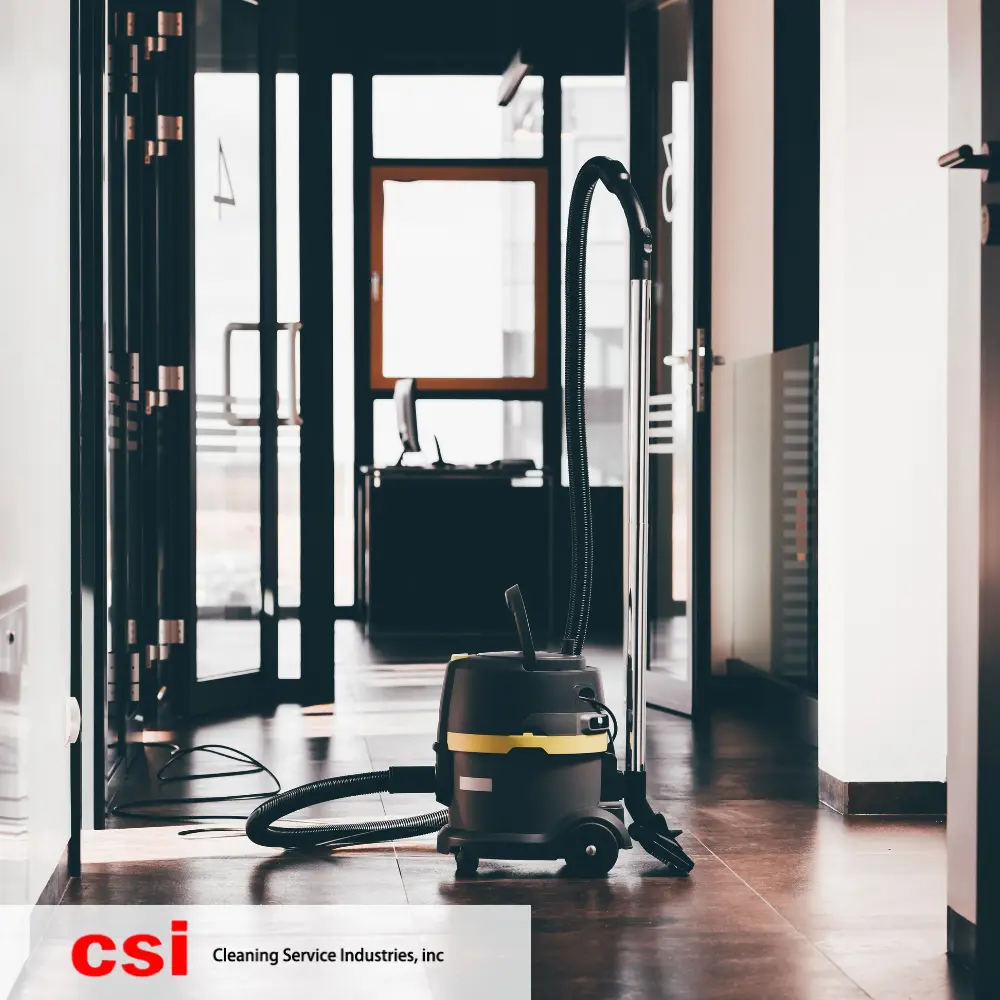 Maintaining a clean office space is more than just about appearances—it's about creating a healthy, productive environment that supports employees and leaves a lasting impression on visitors. However, determining how often to schedule cleanings can be challenging in a busy city like NYC, where office dynamics vary greatly. Whether multiple companies share your office, see constant visitor traffic, or have high footfall areas, the frequency of cleaning must be tailored to specific factors. So, what exactly determines how often an office should be cleaned, and why does getting it right matter?
Maintaining a clean office space is more than just about appearances—it's about creating a healthy, productive environment that supports employees and leaves a lasting impression on visitors. However, determining how often to schedule cleanings can be challenging in a busy city like NYC, where office dynamics vary greatly. Whether multiple companies share your office, see constant visitor traffic, or have high footfall areas, the frequency of cleaning must be tailored to specific factors. So, what exactly determines how often an office should be cleaned, and why does getting it right matter?
What are the Top Factors Affecting My NYC Office Cleaning Schedule?
- Office Size: The more significant the office space, the more time it will take to clean. Large offices require more extensive cleaning efforts, particularly those with numerous rooms or expansive open areas. In these spaces, cleaning companies may need to implement a zonal approach, where different areas are cleaned on different days to manage the workload effectively. For example, one zone could be the main office area, another could be the restrooms, and a third could be the kitchen. This approach ensures that each area receives the attention it needs without overwhelming the cleaning staff. The office's overall size affects how long cleaning takes and how often it must be done to keep up with the volume of dirt and clutter.
- Number of Employees: The number of employees within an office directly influences how quickly spaces get dirty. Frequent cleaning is necessary in offices with more employees to manage high-traffic areas like restrooms, kitchens, and workstations. NYC offices with few employees may require less frequent cleanings, but higher-density offices tend to accumulate dust, debris, and germs faster. Additionally, offices with shared workspaces or hot-desking arrangements will need extra attention to disinfect and sanitize between users.
- New York City Office Layout and Features: Different office layouts and features also dictate cleaning frequency. Offices with extensive carpeting, for example, may need more frequent vacuuming or deep cleaning than those with tiled or hardwood floors. Carpets trap dirt, dust, and allergens, requiring regular maintenance to prevent wear and keep the air quality healthy. Other features, such as glass walls or large windowed areas, may require frequent cleaning to maintain a professional appearance.
- Type of Business: The type of business operating in the office is a significant factor in how often cleaning is necessary. For instance, medical offices or those handling sensitive materials require daily deep cleaning and disinfecting. On the other hand, offices that see little interaction with the public, such as back-office operations or consulting firms, may only need weekly or bi-weekly cleaning. Offices with high visitor traffic, like real estate agencies or law firms, may need more frequent lobby and restroom cleaning to maintain a pristine appearance for clients.
- Visitor Frequency: Offices that receive regular visitors, clients, or customers need more frequent cleaning to ensure that high-traffic areas like lobbies, restrooms, and meeting rooms are always presentable. Even in offices with few visitors, the impression left by a clean space can be crucial for maintaining a professional image. Regularly cleaning areas that guests frequent can leave a positive impression and help businesses avoid negative feedback related to cleanliness.
- Restroom and Kitchen Usage: Restrooms and kitchens are notorious for quickly accumulating dirt, germs, and clutter, especially in offices with many employees or frequent guests. In larger offices or those with high usage, these areas should be cleaned daily and sometimes multiple times daily to ensure sanitary conditions. Regular deep cleaning removes built-up grime and ensures these communal spaces remain hygienic.
- Weather Conditions: NYC's variable weather can also impact the frequency of office cleaning. Employees and visitors often track in mud, water, and slush in wet or snowy conditions, which can quickly dirty floors and carpets. In such cases, offices may need to schedule more frequent floor cleanings to avoid lasting damage from dirt or moisture. Similarly, during the summer, higher foot traffic due to commuting and warmer conditions may increase the need for cleaning in high-use areas.
- Budget and Resources: Finally, the budget allocated to cleaning services will also impact the frequency of cleanings. While daily cleaning may be ideal for maintaining a spotless office, budget constraints may require businesses to prioritize which areas receive the most attention. Focusing on high-traffic zones like restrooms, kitchens, and entryways while scheduling less frequent deep cleaning for less-used spaces can help maintain a clean environment within budget limits. Additionally, consider negotiating with cleaning services for a cleaning plan that is within your budget.
How Can You Ensure the Right Office Cleaning Schedule for Your Space?
Determining the best cleaning schedule for an NYC office requires considering various factors, including office size, employee count, type of business, and the specific needs of high-traffic areas. By tailoring the cleaning frequency to these factors, companies can maintain a clean, professional space that supports employee health and productivity.
